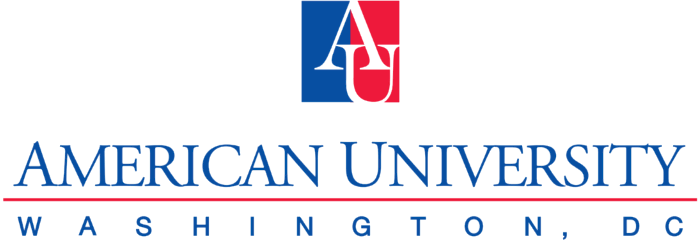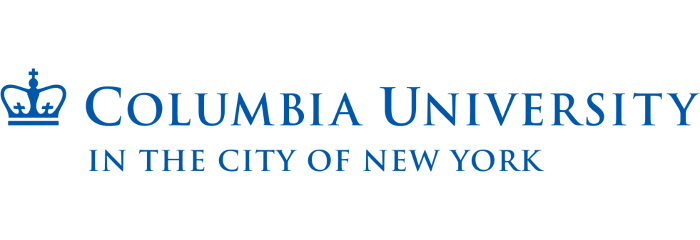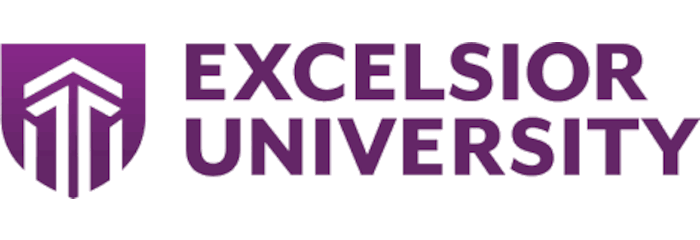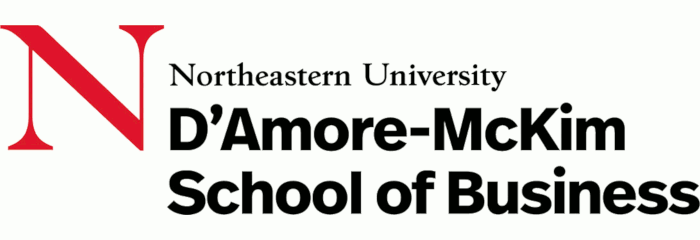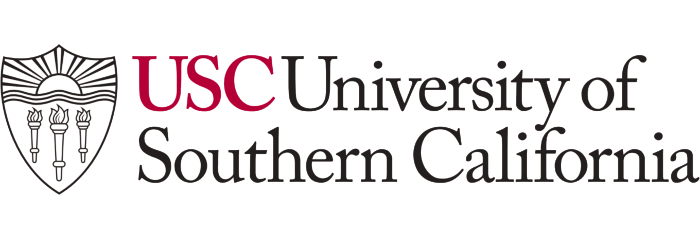Accredited Non-Profit Online Colleges & Schools
When pursuing higher education, prospective students may find it helpful to understand the differences between for-profit and non-profit online universities and colleges. For-profit schools are owned and operated by private businesses. Therefore, most of the profits earned from tuition are used for non-educational purposes and go back to investors. Non-profit schools exist to serve the public good rather than to make a profit.
On this page, we provide a comprehensive list of accredited, non-profit institutions offering online programs and highlight six non-profit schools that feature in many of our rankings. The list is ordered by the number of students enrolled online which is obtained from the National Center for Education Statistics (NCES). We'll take a deeper look at both non-profit and for-profit colleges and the differences between the two. We'll also talk about the value of accreditation, financial aid options, and finally, help you decide whether to choose a for-profit or non-profit online college.
ON THIS PAGE
Nonprofits For-Profits Which is Better? Financial Aid FAQs| Full List | Online Enrollment | Annual Tuition | Recommend Rate |
|---|---|---|---|
| Full List (596) | |||
| Western Governors University | 136,139 | $6,670 | Western Governors University. "> 71% (737 reviews) |
| Southern New Hampshire University Online | 106,375 | $9,600 | Southern New Hampshire University Online. "> 63% (441 reviews) |
| Liberty University | 70,429 | $11,700 | Liberty University. "> 58% (326 reviews) |
| University of Maryland Global Campus | 46,847 | $12,336 | University of Maryland Global Campus. "> 59% (225 reviews) |
| Arizona State University | 44,253 | $24,413 | Arizona State University. "> 64% (112 reviews) |
| Purdue University Global | 37,778 | $14,358 | Purdue University Global. "> 72% (470 reviews) |
| Excelsior University | 25,245 | Not Provided | Excelsior University. "> 63% (188 reviews) |
| Johns Hopkins University | 19,138 | $55,350 | Johns Hopkins University. "> 0% (1 review) |
| The University of Texas at Arlington | 18,824 | $28,129 | The University of Texas at Arlington. "> 33% (27 reviews) |
| Ultimate Medical Academy | 18,023 | $15,525 | Ultimate Medical Academy. "> 84% (533 reviews) |
| Florida International University | 13,671 | $18,963 | Florida International University. "> 77% (13 reviews) |
| Georgia Institute of Technology | 13,301 | $33,794 | Add Review |
| Saint Leo University Online | 12,962 | $23,750 | Saint Leo University Online. "> 63% (93 reviews) |
| Colorado State University Global | 12,670 | $8,400 | Colorado State University Global. "> 55% (112 reviews) |
| Lone Star College System | 11,308 | $5,564 | Add Review |
| Independence University | 11,228 | $14,585 | Independence University. "> 56% (124 reviews) |
| Northcentral University | 11,223 | $18,095 | Northcentral University. "> 48% (267 reviews) |
| University of Central Florida | 11,073 | $22,467 | University of Central Florida. "> 88% (8 reviews) |
| Bellevue University | 10,503 | $7,851 | Bellevue University. "> 68% (69 reviews) |
| Thomas Edison State University | 10,130 | $9,856 | Thomas Edison State University. "> 58% (74 reviews) |
| The George Washington University | 9,978 | $56,935 | The George Washington University. "> 60% (5 reviews) |
| Indiana Wesleyan University Online | 9,822 | $18,906 | Indiana Wesleyan University Online. "> 39% (33 reviews) |
| University of the Cumberlands | 9,492 | $9,875 | University of the Cumberlands. "> 100% (4 reviews) |
| Lamar University | 8,372 | $18,622 | Lamar University. "> 47% (17 reviews) |
| Regent University Online | 8,238 | $18,620 | Regent University Online. "> 38% (24 reviews) |
| Ohio University - Main Campus | 7,818 | $22,406 | Ohio University - Main Campus. "> 75% (4 reviews) |
| Oregon State University | 7,467 | $31,215 | Oregon State University. "> 57% (7 reviews) |
| East Carolina University | 7,109 | $23,515 | East Carolina University. "> 80% (5 reviews) |
| Troy University | 6,721 | $13,520 | Troy University. "> 50% (12 reviews) |
| University of Southern California | 6,651 | $58,195 | University of Southern California. "> 62% (13 reviews) |
| USC Suzanne Dworak-Peck School of Social Work | 6,651 | $58,195 | Add Review |
| University of Illinois Urbana - Champaign | 6,492 | $32,264 | University of Illinois Urbana - Champaign. "> 100% (1 review) |
| Louisiana State University - Shreveport | 6,358 | $20,481 | Louisiana State University - Shreveport. "> 67% (18 reviews) |
| South University Online | 6,195 | $15,304 | South University Online. "> 38% (71 reviews) |
| University of Cincinnati | 6,186 | $26,994 | University of Cincinnati. "> 83% (6 reviews) |
| Northern Arizona University | 6,183 | $26,516 | Northern Arizona University. "> 67% (18 reviews) |
| Old Dominion University | 6,154 | $30,840 | Old Dominion University. "> 64% (11 reviews) |
| Maryville University | 6,123 | $28,470 | Maryville University. "> 34% (44 reviews) |
| University of South Florida Online | 5,874 | $17,324 | University of South Florida Online. "> 50% (4 reviews) |
| Nova Southeastern University | 5,824 | $32,110 | Nova Southeastern University. "> 63% (8 reviews) |
| University of Alabama at Birmingham | 5,736 | $20,400 | University of Alabama at Birmingham. "> 100% (1 review) |
| Drexel University | 5,189 | $54,516 | Drexel University. "> 67% (6 reviews) |
| Kennesaw State University | 5,107 | $12,888 | Kennesaw State University. "> 67% (6 reviews) |
| Ball State University | 5,079 | $26,800 | Ball State University. "> 100% (5 reviews) |
| University of Arizona | 5,073 | $11,800 | University of Arizona. "> 75% (4 reviews) |
| University of Arizona - Engineering | 5,073 | $36,718 | Add Review |
| Utah State University | 5,005 | $23,042 | Utah State University. "> 100% (11 reviews) |
| Boston University | 4,618 | $55,892 | Boston University. "> 75% (4 reviews) |
| Northwestern State University of Louisiana | 4,539 | $19,556 | Northwestern State University of Louisiana. "> 67% (3 reviews) |
| University of Alabama | 4,515 | $30,250 | University of Alabama. "> 60% (5 reviews) |
| Arkansas State University | 4,478 | $15,860 | Arkansas State University. "> 75% (4 reviews) |
| University of Florida | 4,430 | $28,659 | University of Florida. "> 60% (5 reviews) |
| University of Florida - Community Sciences | 4,430 | $28,659 | Add Review |
| The University of West Florida | 4,345 | $19,241 | The University of West Florida. "> 80% (5 reviews) |
| Texas Woman's University | 4,265 | $18,055 | Texas Woman's University. "> 100% (2 reviews) |
| Northern Kentucky University | 4,157 | $20,256 | Northern Kentucky University. "> 60% (5 reviews) |
| University of North Texas | 4,067 | $21,172 | University of North Texas. "> 60% (5 reviews) |
| University of Massachusetts - Lowell | 4,064 | $33,574 | University of Massachusetts - Lowell. "> 86% (7 reviews) |
| University of West Alabama | 4,018 | $20,090 | University of West Alabama. "> 60% (5 reviews) |
| Boise State University | 4,017 | $24,988 | Boise State University. "> 100% (1 review) |
| Kent State University at Kent | 4,008 | $19,478 | Kent State University at Kent. "> 100% (1 review) |
| Texas A&M University - Commerce | 3,977 | $21,628 | Texas A&M University - Commerce. "> 86% (7 reviews) |
| Colorado Christian University | 3,877 | $33,434 | Colorado Christian University. "> 47% (17 reviews) |
| Central Michigan University | 3,811 | $24,120 | Central Michigan University. "> 50% (4 reviews) |
| Colorado State University - Fort Collins | 3,745 | $30,622 | Colorado State University - Fort Collins. "> 83% (6 reviews) |
| Texas Tech University | 3,742 | $19,260 | Texas Tech University. "> 0% (3 reviews) |
| Sam Houston State University | 3,682 | $18,664 | Sam Houston State University. "> 100% (2 reviews) |
| Concordia University - Portland | 3,642 | $32,230 | Concordia University - Portland. "> 57% (49 reviews) |
| Washington State University | 3,574 | $26,419 | Washington State University. "> 62% (13 reviews) |
| Concordia University - Chicago | 3,573 | $32,880 | Add Review |
| Eastern Kentucky University | 3,573 | $19,948 | Eastern Kentucky University. "> 25% (4 reviews) |
| Florida Atlantic University | 3,540 | $17,324 | Florida Atlantic University. "> 67% (6 reviews) |
| University of North Carolina at Wilmington | 3,540 | $21,246 | University of North Carolina at Wilmington. "> 100% (1 review) |
| University of South Alabama | 3,533 | $16,292 | University of South Alabama. "> 50% (6 reviews) |
| University of Massachusetts - Amherst | 3,499 | $35,710 | University of Massachusetts - Amherst. "> 60% (5 reviews) |
| West Texas A&M University | 3,395 | $9,541 | Add Review |
| Western Kentucky University | 3,376 | $26,496 | Western Kentucky University. "> 100% (1 review) |
| University of North Dakota | 3,351 | $15,895 | University of North Dakota. "> 67% (3 reviews) |
| University of Memphis | 3,341 | $13,752 | University of Memphis. "> 33% (3 reviews) |
| Florida State College at Jacksonville | 3,340 | $9,992 | Florida State College at Jacksonville. "> 29% (14 reviews) |
| Florida State University | 3,306 | $18,786 | Florida State University. "> 100% (1 review) |
| University of North Carolina at Greensboro | 3,301 | $22,562 | University of North Carolina at Greensboro. "> 60% (5 reviews) |
| University of Missouri | 3,258 | $28,348 | Add Review |
| Baker College Online | 3,117 | $9,920 | Baker College Online. "> 59% (94 reviews) |
| North Carolina State University | 3,089 | $29,220 | North Carolina State University. "> 50% (2 reviews) |
| Radford University | 3,051 | $23,432 | Add Review |
| Simmons University School of Social Work | 3,008 | $42,070 | Simmons University School of Social Work. "> 100% (2 reviews) |
| University of Iowa | 3,003 | $31,569 | Add Review |
| Valdosta State University | 2,993 | $17,638 | Valdosta State University. "> 100% (3 reviews) |
| Central Washington University | 2,971 | $23,954 | Central Washington University. "> 100% (1 review) |
| University of Alaska Fairbanks | 2,948 | $21,216 | Add Review |
| San Jose State University | 2,935 | $19,732 | San Jose State University. "> 33% (3 reviews) |
| University of Houston-Downtown | 2,918 | $16,916 | University of Houston-Downtown. "> 50% (2 reviews) |
| University of South Dakota | 2,904 | $12,807 | University of South Dakota. "> 60% (5 reviews) |
| Wichita State University | 2,904 | $17,480 | Wichita State University. "> 50% (2 reviews) |
| Villanova University | 2,856 | $55,280 | Villanova University. "> 100% (1 review) |
| Villanova University Online Graduate Programs | 2,856 | $55,280 | Add Review |
| Indiana University - Bloomington | 2,855 | $36,512 | Indiana University - Bloomington. "> 100% (1 review) |
| Webster University | 2,833 | $28,700 | Webster University. "> 71% (7 reviews) |
| Davenport University | 2,796 | $19,338 | Davenport University. "> 100% (3 reviews) |
Highlights of Non-Profit Online Schools
American University
American University (AU) is a private non-profit college that has been classified as an R2 Research Institution by the Carnegie Classification of Institutions of Higher Education. At American University, online students can choose from among 10 Master of Arts or Master of Science degrees in subjects such as strategic communication, public administration and policy, and economics. These online degree programs have received accreditation from the Middle States Commission on Higher Education. Many aspects of the school reflect its location in the nation’s capital. The overall student body is made up of individuals from all 50 states and 130 countries. Students receive an education from more than 1,500 faculty members with real-world experience as policy makers, diplomats, journalists, scientists, creatives, and business leaders. All students are encouraged to complete some coursework at one of the university’s campuses in Spain, Kenya, or Belgium. Among the support services available to online learners are library resources, career development assistance, and a selection of virtual student organizations. The four-year graduation rate at American University, including both online and on-campus students, averages about 75 percent.
Columbia University in the City of New York
Considered part of the Ivy League, Columbia University in the City of New York is one of the oldest private non-profit colleges in the United States. It consistently earns top spots on our school rankings lists for its online master’s degrees in engineering, health education, and computer science. Columbia is particularly strong in its online master’s degree program offerings, with 52 options in many subjects, including social work, operations research, applied mathematics, and applied analytics. The school offers 2 online doctorates and 38 undergraduate and graduate certificates as well. Many of Columbia Online’s programs are designed to address global issues through experiential learning. For example, a significant percentage of the university's online dental and nursing students participate in global health externships. Within the online law school, the Hybrid Executive Master of Laws (LL.M.) enables practicing lawyers to build a global network and engage in complex cross-border transactions. Finally, Columbia’s Earth Institute encourages students to address some of the world’s most difficult problems—from climate change and environmental degradation, to poverty, disease, and sustainable resources—by working with a multitude of strategic partners in science and education.
Excelsior University
Excelsior College is a private non-profit college that has earned top rankings in many of our lists, including a ranking of #3 on our 2021 list of Best Online Bachelor’s Degrees and #1 for Best Online Associate Degrees. Excelsior offers 11 Associate of Science and Associate of Applied Science degrees in subjects such as nursing, criminal justice, and technology. The college also offers 49 bachelor’s degrees and 26 master’s degrees in a wide range of fields, from business administration and electrical engineering to biology and psychology. Excelsior has regional accreditation for its online programs. The school is noted for accommodating adult learners. New courses begin every eight weeks, and online students can earn transfer credits for previously completed higher education courses as well as military service, law enforcement service, and other training, exams, and certifications. Excelsior’s online learning resources include reading and writing labs, career development assistance, tech support, and a library. The school also caters to active military and veteran students by offering special resources and granting tuition discounts, as well as creating online programs of particular interest to these individuals. These degrees include the Bachelor of Science in Homeland Security and Emergency Management, the Bachelor of Science in Military Leadership, and the Bachelor of Science in National Security - Intelligence and Security Analysis.
Northeastern University
Consistently featured in our school rankings lists, Northeastern University is #2 on our 2021 list of Best Online Bachelor’s Degrees. Northeastern’s high-quality online programs include 14 bachelor’s degrees, 7 doctoral degrees, and 68 undergraduate and graduate certificates. The university is especially strong in its master’s degree program offerings, with 190 options to choose from. These include 12 variations of a Master of Arts in Homeland Security degree, 9 Master of Business Administration degrees, 12 Master of Science in Global Studies and International Relations degrees, and 8 Master of Science in Leadership degrees. Similar to their on-campus programs, Northeastern incorporates experiential learning components into their online courses through its Experiential Network. Online students are required to engage in short-term virtual projects at top companies, enabling them to gain experience while developing skills. Certain online programs, such as education, taxation, and nursing, also prepare students to pass exams and meet all other requirements for professional licensure in their respective fields. Distance learning students are encouraged to interact with each other through the Digital Media Commons. They’re also invited to use many of the university’s other student resources, such as the library, IT helpdesk, peer tutoring, and writing center.
University of Southern California
A leading private non-profit college in the country, the University of Southern California (USC) consistently places at the top of our school rankings lists. USC earned the #1 spot on our 2021 Best Online Doctoral Degrees list and was recognized in nine of our 2020 rankings. The school offers 5 doctoral degrees through the education department, 30 undergraduate and graduate certificates, and a wealth of online master’s programs. Among the 99 possibilities are master’s degrees in engineering, teaching, public health, computer science, and nursing. The curricula of some of these programs, such as master’s degrees in nursing and education, are designed to prepare students to meet state requirements for professional licensure. Like their on-campus counterparts, USC online students will benefit from the university’s Diversity, Inclusion & Access (DIA) Initiative. The objectives of this initiative are to increase diversity in higher education, attract and include highly qualified underrepresented students, and to provide access to the tools needed to achieve professional goals. Online students at USC will also have the opportunity to receive a quality education from the school’s distinguished faculty, which includes five Nobel laureates and dozens of other prestigious award winners. The six-year graduation rate for USC students is 92 percent.
University of Virginia
Ranked #1 on our 2021 list of the Best Online Bachelor’s Degrees, the University of Virginia (UVA) is a non-profit, public university. UVA offers a wide range of online education options: 13 bachelor’s degrees, 25 master’s degrees, 6 doctoral degrees, and 29 undergraduate and graduate certificates. Programs include 11 Bachelor of Interdisciplinary Studies degrees in specializations such as business, cybersecurity, and health care management, 12 variations of the school's Master of Education in Curriculum and Instruction degree, and 6 Master of Engineering degrees. The curricula of some of these online programs, such as the RN to BSN bachelor’s degree and the various master’s degrees in education, are designed to prepare students to meet the requirements for professional licensure. UVA also offers a number of alternative online courses, including computer programming bootcamps and other options delivered through Coursera. Online students at UVA gain access to essential services, including the library, tech support, mental health care, career development assistance, and tutoring. UVA has an overall four-year graduation rate of 88 percent.
What Is a Nonprofit College?
Nonprofit colleges are designed to not generate investment returns for investors. Instead, the institution uses its funding to cover current and future operating expenses, which include salaries and facilities.
A board of trustees governs each nonprofit school with the goal of making sound financial decisions for the institution while also meeting student needs.
Both private and public nonprofit colleges receive government funding through student financial aid awards, contracts for goods and services, and research grants. Additionally, nonprofit schools rely on private endowments, donations, and revenue from sports programs to fund academic programs and activities. A board of trustees governs each nonprofit school with the goal of making sound financial decisions for the institution while also meeting student needs.
Types of Nonprofit Colleges
Nonprofit schools can be either public or private. Two-year nonprofit colleges — including community colleges — typically offer associate degree and certificate programs. Many students transfer these credits to a nonprofit four-year college or university to complete a bachelor's and possibly continue for a graduate degree.
Most nonprofit institutions offer distance education and online learning, which may be more convenient for students who want to attend part time while juggling other responsibilities. Nonprofit public schools tend to offer a wider range of academic programs than nonprofit private colleges.
What Is a For-Profit College?
For-profit colleges are privately owned and funded by companies and investors. Most profits don't go back into the school but instead go to various stakeholders who have invested in the school.
For-profit schools aren't required to reinvest as much in operations as nonprofit schools. Instead, they invest a large portion of their money in marketing, advertising, and lobbying against funding restrictions.
Prospective students are often attracted to for-profit colleges because many offer both on-campus and online programs in popular fields such as business, information technology, and healthcare. In fact, they were initially at the forefront of online college education. Many also offer accelerated programs allowing students to finish their education in less than the average time.
What Is the Difference Between a Nonprofit and a For-Profit College?
There are several major differences between these types of colleges, namely how they receive and distribute money, their affordability, and their general reputation.
Funding for Nonprofit and For-Profit Colleges
The biggest difference between these two types is where they get their money and how they use it. Here is the percentage of funding that each type of college receives from tuition and fees versus government sources, according to the National Center for Education Statistics (NCES):
- 20% from tuition and fees
- 43% from government sources
- 34% from tuition and fees
- 14% from government sources
- 93% from tuition and fees
- 2% from government sources
When it comes to spending money, nonprofit schools are statutorily barred from keeping profits beyond operating costs, whereas for-profit schools are businesses.
Nonprofit and For-Profit Affordability
In the academic year 2020-2021, tuition and fees cost an average of $9,400 at four-year public schools compared to $18,200 at private for-profit colleges. But it's worth noting that private nonprofit colleges are the most expensive options at $37,600 in 2020-2021. Additionally, the low costs of public schools only apply to students who qualify for in-state tuition rates.
Students are at greater risk of defaulting on student loans from costlier programs. According to the Brookings Institution, for-profit schools enroll only 10% of students, yet these students account for about 50% of loan defaults. In addition, 71% of students enrolled in for-profit degree programs take out federal loans compared to only 49% of nonprofit degree-seekers.
What's more, not all school types can offer the same financial aid options. Students can apply for financial aid to fund a for-profit education and may qualify for federal loans and Pell grants, but they're not eligible for federal work-study programs. In addition, applicants from for-profit institutions may not be considered for private scholarships.
Reputation Differences Among Nonprofit and For-Profit Colleges
Justified or not, employers may perceive the quality of nonprofit and for-profit colleges differently. Some for-profit colleges are considered "diploma mills" with a reputation for churning out degrees of dubious value.
Some for-profit colleges are considered "diploma mills" with a reputation for churning out degrees of dubious value.
Employers may be skeptical of a for-profit school's academic standards because these colleges aren't required to reinvest their money back into their programs. The Century Foundation reports that public universities spend $1.42 on student instruction for every tuition dollar collected, and private universities spend $0.84. But for-profit schools allocate just $0.24 from every tuition dollar on instruction.
Should You Choose a Nonprofit or For-Profit College?
Many criteria factor into a college decision, and some will matter more to you than others. Think through this as you decide between nonprofit and for-profit schools: You may appreciate nonprofit colleges more if you want a broad, theoretical education with opportunities to engage in student activities with your peers. You might prefer the for-profit route if you're looking to learn specific job skills to potentially enter the workforce more quickly.
You can also consider the factors we list below, which are closely related to the differences between college types that we described above.
Cost
Nonprofit colleges: Tuition rates are most affordable at public nonprofit schools and least affordable at private nonprofit colleges.
For-profit colleges: In addition to costing more than public schools, students at for-profit colleges are much likelier to take on student loans and default on them.
Quality and reputation
Nonprofit colleges: Researchers at the think tank, Third Way, consider most public four-year institutions (61.8%) to be low-price, high-quality institutions, while the majority (71.8%) of private nonprofit schools have a high price and are of high quality.
For-profit colleges: A study conducted by the think tank, New America, found that most Americans still don't trust that for-profit colleges are worth the cost. And by Third Way's criteria, nearly 80% of for-profit colleges are high-cost and low-quality institutions.
Graduation rate
Nonprofit colleges: Data from the NCES shows that between 2013 and 2019, 63-68% of bachelor's students graduated from nonprofit schools within six years.
For-profit colleges: During the same period, the six-year bachelor's graduation rate was 26% at for-profit schools, partly thanks to their misleading recruitment practices. However, the associate degree graduation rate was significantly better at for-profit colleges.
Accreditation for Nonprofit Colleges
Most nonprofit schools are institutionally accredited (which used to be called regional or national accreditation). This means that the school passed an independent accreditor's review of its faculty, curriculum, administration, and services. Accreditation is necessary for a school to receive federal funding and for its students to use federal financial aid at the institution.
You can find accredited schools by searching the Department of Education's Database of Accredited Postsecondary Institutions and Programs.
Financial Aid for Nonprofit Colleges
You'll typically be eligible for federal financial aid if you attend an accredited nonprofit college online. Forms of aid might include grants, work-study programs, and loans just like your in-person peers. However, you usually still need to work on campus to receive work-study funds.
You can start the financial aid process by completing a Free Application for Federal Student Aid (FAFSA) to determine your financial need. Most states and colleges also gather relevant information from this form.
Beyond government funds, you might apply for scholarships from schools, nonprofit organizations, or individuals. Other forms of aid include fellowships for graduate students who work in their department, employer tuition reimbursement benefits, and the GI Bill for service members, veterans, and their families. Once you've exhausted all financial aid options, you can apply for loans through a private lender, but take care: Private loans tend to feature less favorable interest rates and conditions than federal loans.
You won't be able to fill out a FAFSA if you have undocumented immigration status, but many states provide similar forms so you can at least receive state aid.
FAQs About Accredited Nonprofit Online Colleges and Schools
Are Nonprofit Colleges Good?
Nonprofit colleges have a better reputation than for-profit schools among experts and the general public, partly thanks to federal penalties against the for-profit sector. Therefore, attending a for-profit school could potentially affect your experience in the job market. However, it's certainly possible to have a great experience at a for-profit college or a negative experience at a nonprofit school.
Are U.S. Colleges Nonprofit?
U.S. colleges can run as either nonprofit or for-profit institutions. According to the NCES, there were 3,227 nonprofit schools and 704 for-profit schools in 2021.
What Is the Largest Nonprofit University in the U.S.?
Western Governors University (WGU) is the largest nonprofit college in the nation, with 147,866 students enrolled in 2020. WGU is a private, entirely online institution.
What Is the Most Affordable Accredited Online College?
WGU features one of the lowest tuitions of any college offering online bachelor's degrees. This is notable because WGU is private and nonprofit, which tends to be the most expensive type of college.
Related Articles
Best Online Colleges
Our rankings are the first of their kind to use student salary and debt data from the government to highlight the best online colleges.
By OnlineU Staff Writers | 11/8/2022

